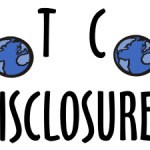

Alright! Well if you’re reading this post, exciting things are happening! Either you are making enough money that you need to know what to do about taxes, or you think that will happen sometime soon. Either way, go you!
This one’s going to have to be a bit general. I live in CA, but tax laws are different everywhere. I will try and cover the things that you have to know no matter where you live.
Common Misconceptions
You don’t have to claim income from any source unless it is over $600 in one year. This is a common belief because companies are not required to send you a 1099 tax form unless they pay you $600 or more. That doesn’t mean you are free from claiming anything below $600 as income.
According to the IRS, “All income earned through the taxpayer’s business, as an independent contractor or from informal side jobs is self-employment income, which is fully taxable and must be reported on Form 1040.” For a full explanation, see this page, but just know that you are supposed to claim everything.
You don’t have to claim income if you are not an official business. This is simply not true. You are supposed to claim all income, no matter the source. The IRS cites baby-siting and lawn mowing as examples of income that is supposed to be reported, so income from blogging definitely has to be reported.
I can write off my home office if I make money blogging. This is only somewhat untrue. You absolutely can write off a home office. If it is solely a home office. If you use the room for anything else, your room is not eligible to be written off. So, we store clothes in a closet here and have a file cabinet with my old baseball cards in the room. That would be a no-go. I have heard stories about the IRS actually sending out inspectors for this as well. So it is possible, just know that you’ll be raising some eyebrows at the IRS.
Common Blogger Tax Deductions
There is a lot of stuff you can write off as a blogger earning an income. It is important to save all of your receipts and invoices in the event that you need to provide documentation for anything.
Here is a list of things that you can potentially write off as a blogger claiming income:
- graphic design
- domain and hosting fees
- home internet cost
- computer, computer accessories
- organizers/planners
- home office supplies like pens, pencils, printer, paper
- office furniture
- digital camera and lenses
- software such as Photoshop, PicMonkey, etc.
- business cards and promotional material
- prizes for contests you run
- conference fees and hotel charges
- restaurant tabs from blogger meetups/networking opps
- professional services fees (accounting, legal advice)
It is important to make sure that what you are writing off truly is in relation to you earning an income from blogging. It is tempting to write off everything under the sun, but don’t. It’s illegal.
Filing Taxes
All states are different, but they will all have a place for you to enter additional income. This is where you will enter your income from blogging. As noted by the IRS here, generally speaking, self-employed individuals are required to file their taxes quarterly. It might be worth it to pay for a tax consultation to have someone break everything down for you to get you started on the right foot.
That’s the basics of blogging and taxes. The main points are to save your documents and receipts, follow your local and federal tax rules and make sure to meet the deadlines. It’s not the most fun part of blogging, but hey, it means you are making money from it, which is a good thing!





Leave a Reply